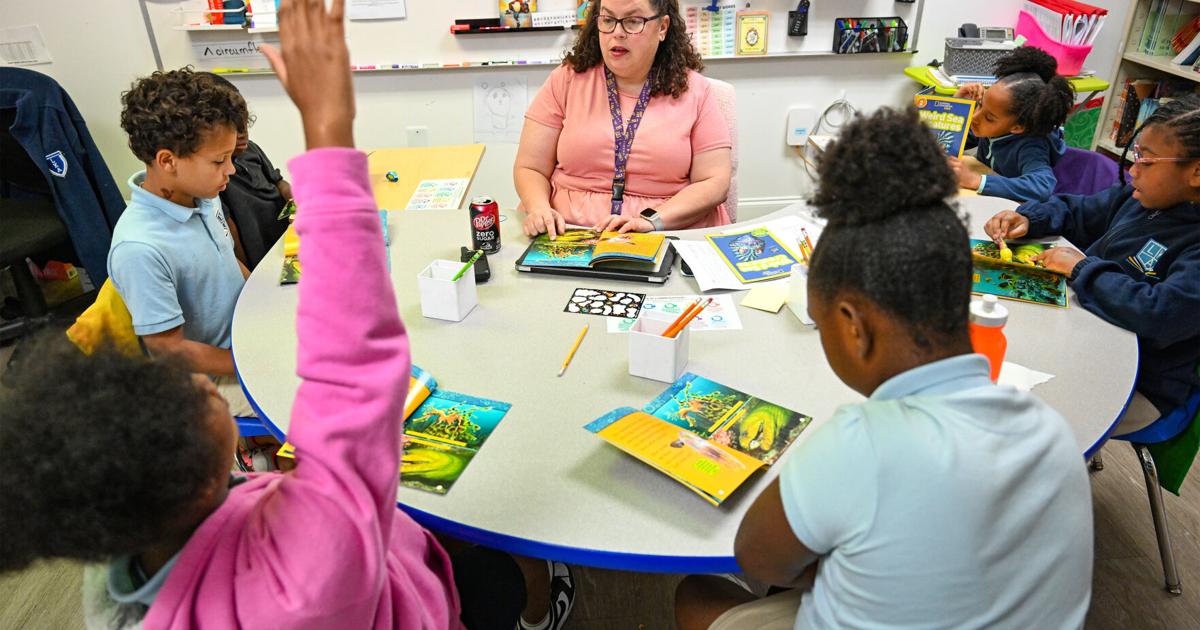Louisiana
John M. Barry: It’s not too late to get oil and gas industry to fix what it broke — but it soon will be

Ten years ago the Southeast Louisiana Flood Protection Authority-East– the levee board responsible for protecting the east bank of metro New Orleans– authorized a law firm to sue oil, gas and pipeline companies for their role in coastal land loss. While the lawsuit was my idea, my colleagues on the board — most of whom were Republican — unanimously embraced it for two reasons.
Although land loss has multiple causes, we knew — and scientific studies by oil companies agreed — that industry operations accounted for massive damage, often because companies violated regulations, permits and laws.
We also knew that the state’s $50 billion coastal master plan — whose real cost exceeds $100 billion— had insufficient funding. Once the billions of dollars from the BP settlement ran out, only a trickle of money would be available. So why not expect companies that caused the damage to pay?
U.S. Rep. Garret Graves, then chairman of the Coastal Protection and Restoration Authority, told us that our suit “has merit.” His deputy Kyle Graham said industry leaders “very well understand the liability that’s out there on the coast. There will come a day when there is some sort of settlement. It’s very difficult to see a future in which that isn’t there.” Jerome Zeringue, Graves’ successor as CPRA head and now chair of the House Appropriations Committee, said that “no one denies there is a responsibility and obligation on the part of oil and gas in regard to the effects of oil and gas activity.”
Yet the suit ignited a political firestorm and they all opposed it. I was removed from the CPRA and SLFPAE. Gov. Bobby Jindal demanded SLFPAE withdraw the suit. Legislators introduced 17 bills to kill it and one became law. A judge ruled it unconstitutional, but another judge ruled SLFPAE lacked standing. Our lawsuit failed.
A decade has passed. Considerable progress on coastal restoration has been made, most of it paid for by settlement dollars from BP’s spill. That money ends soon. Outgoing CPRA chief Chip Kline warns that without another funding source, “the progress is going to halt.”
Where’s another source? How about companies that caused so much land loss? The coastal damage the spill did is trivial compared to damage done by decades of industry operations.
After SLFPAE sued, seven coastal parishes also filed. The industry has delayed all trials for a decade, but the first trial will finally start in November. Money awarded to the parishes will go to restoration, but even if all those lawsuits succeed, they won’t provide enough resources.
That’s because most coastal parishes have not filed. Terrebone and Lafourche, the two parishes suffering the most land loss, haven’t, even though the state’s Department of Natural Resources attributed 76% of land loss there to industry activities.
Another problem: No statewide action has been taken to make those who own pipelines, which caused a huge part of the damage, contribute to the solution.
Instead, tax-hating politicians expect taxpayers to bear the entire cost of coastal repair, rather than asking the wealthiest industry in the history of the world to fix what it broke. Besides, coastal restoration protects industry infrastructure; should taxpayers pay for that? The Legislature hasn’t even created the vehicle necessary to implement a $100 million settlement — supported by Republican Attorney General Jeff Landry and Democratic Gov. John Bel Edwards — between Freeport McMoran and several parishes.
Our politicians say the solution lies in increasing the state’s share of offshore oil and gas revenue. This would cost oil companies nothing; it would only redirect money from the federal treasury to Louisiana. I support that effort and even played a role in passing the 2006 law which first gave Louisiana a share of that revenue, but given current fights over federal spending, no effort to redirect money from the rest of the country to Louisiana will likely succeed. Even if it did, that’s no reason to excuse the oil industry from its liability.
Isn’t it time now to do what everyone knew was right 10 years ago?
The politics shouldn’t be so tough. Polls have found overwhelming support for the idea that industry should repair the damage it did.
It may not be too late for Edwards to act. Or it may be up to the next governor.
Or possibly Graves can get something done. He opposed the lawsuit when he was working for Jindal. Now he’s his own man. Before SLFPAE sued he asked industry representatives to sit down and work out a voluntary agreement. They refused. Five years ago he arranged a congressional hearing on the coast and asked the witnesses, all of whom had opposed the suit except myself, if they would support federal legislation requiring the industry to contribute to the coast. We unanimously said we would.
Someone has to do it, or Louisiana as we know it will disappear. Anyone?
John M. Barry is a former vice president of the Southeast Louisiana Flood Protection Authority-East, a former member of the Louisiana Coastal Protection and Restoration Authority and author of “Rising Tide: The Great Mississippi Flood of 1927 and How it Changed America.”

Louisiana
Letters: La. Ten Commandments law should be upheld

The Supreme Court will have an important decision in regards to the Ten Commandments in Louisiana public schools.
The U.S. Constitution’s First Amendment prohibits the government from establishing a religion or favoring one religion over another.” I submit that the Ten Commandments are not a religion, which is prohibited by the Constitution. The Commandments set out core principles of behavior for individuals and society, conduct which has been adopted by religions for thousands of years. Even the Quran adopts many of the core principles of the 10 Commandments. I do not know of any religion, per se, that believes the Commandments are a religion. They merely enumerate a code of conduct.
All religions have their own dogma, interpretations, rules, etc. It is that which designates them as religions, not the Ten Commandments.
It should be emphasized that the Ten Commandments are not the essence of, but an integral part of, the history of Western civilization lasting over 3,000 years. They have shaped moral and legal foundations with prohibitions on core crimes; laws against murder, theft and perjury are found in every legal code. Additionally, the Commandments protect the rights of private property and give us a civil understanding of ownership, as well as respect for parents.
Remember the Sabbath day has influenced the creation of Sabbatarian laws.
Without the Ten Commandments, we would have no Magna Carta, no Constitution of the United States or numerous other codes, including the French “Rights of Man.” They provide a moral framework with God and fellow human beings. They provide a guide to individual conduct, fostering virtues of integrity and respect. They also are the sin qua non of social order by encouraging actions of trust and cooperation. Without them, we would be savages.
Louisiana
Baton Rouge's Sullivan Theatre brings “Oklahoma!” to Louisiana – Reveille

Cowboys, farmers and wide, beautiful fields of grass and cattle. With there being so much to love about Oklahoma, how does one choose their future?
Starting on June 13, The Sullivan Theater will be performing the Rodgers and Hammerstein classic, “Oklahoma!”
The story follows Laurey Williams and Curly McLain and their community full of a loving and rowdy cast of characters. Taking place in the early 20th century, “Oklahoma!” gives a glance into rural life in the territory before it became an American state. Full of lovers’ quarrels, dancing and a little bit of horseplay, the show is the perfect way to spend the summer.
“Oklahoma!” was Rodgers and Hammerstein’s first collaboration, not only setting the stage for their body of work but influencing musical history.
Recent LSU graduate Callie Ancelet plays Williams in the show. She found out about it while performing in “Xanadu,” Theatre Baton Rouge’s last show.
Ancelet said a lot of her experience with golden age musicals came from LSU. In 2023, LSU Opera produced “Carousel,” another Rodgers and Hammerstein musical, which Ancelet took inspiration from.
Ancelet, who now works as a music teacher, talked about how she prepared for the “Oklahoma!” auditions while already being in “Xanadu.”
“I would go to work from 8 to 4, then drive straight to the School of Music and practice my audition songs from like 4:30 to 5. Then I would go straight to Theatre Baton Rouge for a dress rehearsal or to perform in Xanadu.”
For those who may not be acquainted with “Oklahoma!”, Ancelet detailed what the show is about.
“It very much centers on love, and the simplicity of how things just always work out in the end,” Ancelet said.
Ancelet went on to explain why “Oklahoma!” is seen as an important point in musical history.
“When ‘Oklahoma!’ came out, that’s when we started straying away from super classical opera and really getting into musical theater,” Ancelet said. “That different style of singing and composing musical theater.”
The conversation shifted to talking about Ancelet’s character Laurey, and the influences on her portrayal as a character.
For Ancelet, Laurey is “on this pendulum of swinging back and forth between having to face reality” while also being a “dreamer” who “dreams with her whole heart.”
“I love when we finish off the show, and she’s just this wholehearted, well-rounded young woman, and I really loved doing a deep dive on her character,” Ancelet said.
To prepare for her role, Ancelet started by watching as many versions of Laurey as she could, and reading the script repeatedly.
During her time researching, Ancelet also took inspiration from other musical women, like Jenna from “Waitress,” Julie from “Carousel” and Elizabeth Swan from “Pirates of the Caribbean.”
She also studied Tiana and Naveen’s relationship from “Princess and the Frog,” hoping to use that in portraying her character’s relationship with Curly.
Ancelet said she particularly enjoyed working with her fellow cast members, many past castmates and Baton Rouge theater veterans. She called them excellent collaborators that she has a lot of respect for.
“When the cast list came out, and I saw all these hard hitters in our musical theater community, all these people that are so talented and I have much respect for, I was so excited,” Ancelet said.
For anyone thinking about seeing “Oklahoma!”, she has a message.
“Just sit back, relax, I’m really excited for us to immerse you in our little romantic cowboy western world,” Ancelet said.
In “Oklahoma!”, Thomas Jackson plays Curly McLain, a bright eyed, hardworking, All-American cowboy.
Jackson most recently performed in Theatre Baton Rouge’s “Waitress” and “Xanadu” with Ancelet. He has also previously worked with the Sullivan, playing Kodaly in “She Loves Me.”
In playing McLain, Jackson wanted to make sure he was “a product of his circumstances” and “super honest to the times and who he would be.”
Jackson also brought up the main conflict for Curly. Like many of the young characters in the show, he’s at the point where they have to define who they are as a person and what they want with the future, as Oklahoma as a territory is also defining itself as a part of the United States.
“I’m approaching him as somebody that knows how to take care of themselves,” Jackson said. “And because of growing up on this land, he knows how to take care of others in turn… a lot of living in this time is a marriage of survival and thriving and trying to romanticize your life to where it feels enjoyable.”
The conversation shifted to talking about the cast, specifically Jackson’s co-star Ancelet. As he was talking, Jackson told a backstage story from “Xanadu.”
“I remember we were getting ready to audition, and me and Callie sat with each other,” Jackson said. “We held each other’s hands and we said, ‘Can you imagine? What if.’”
When talking about each of their favorite parts of the show, both Ancelet and Jackson said the song “Surrey with the Fringe on the Top” was their favorite.
“It’s so precious,” Ancelet said. “We see two sides of Curly’s and Laurey’s relationship where it’s so cat and mouse. Then we center back towards the end of the song where there’s such a realness and authenticity to their relationship.”
Mentioning the Sullivan cast, Jackson called them hilarious..
“It is a group of comedians, through and through,” Jackson said.
Jackson began to talk about the theme of community throughout the show.
“I think it’s an important show to recognize right now and to remind people of their humanity,” Jackson said. “In this show we see different examples of what it’s like to be in a community.”
He talked about the character Jud who longs for community, and Curly and Laurey who “take strides into not just being part of community, but having a life of their own.”
Tickets for “Oklahoma!” are available on the Sullivan Theater’s website. Tickets are $25 for students and $35 for adults. The show opens June 13 and closes June 29.
Louisiana
A Louisiana charter school for dyslexic students plans to expand. See where, when

As many as one in every five Americans has dyslexia.
Yet as of 2023, only about 1% of the nearly 700,000 students in Louisiana public schools have been identified as having dyslexia.
For dyslexic children who go untreated, gaps in reading and writing abilities can begin as early as first grade, with potential consequences over time including lower high school graduation rates or college enrollment numbers, and higher chances of unemployment or incarceration.
That’s why Louisiana Key Academy, a nonprofit charter school, has sought to bridge the gap for dyslexic students by providing testing and specialized education programs at no cost to parents. Since its launch in Baton Rouge in 2013, the school has assisted hundreds of students and expanded to additional locations across the state.
The Louisiana Key Academy plans to open its fifth and newest location in Jefferson Parish, the largest public school system in the state, for the 2027-2028 school year. The Louisiana State Board of Elementary and Secondary Education will vote to approve the new location in August.
“I think every parish in the state needs a Louisiana Key Academy,” said former state Rep. Joe Marino, no party-Gretna.
Fourth grade teacher Olivia LeDuff helps student Aaliyah Williams read a short story on a tablet during a Structured Language Arts lesson at Louisiana Key Academy in Baton Rouge on Wednesday, May 21, 2025.
Dyslexia is a learning disability that affects a person’s phonological processing, or ability to speak, read and spell. Dyslexia has no visible symptoms, and affects people for their entire lives.
Those with dyslexia require specialized education to meet their needs, including at least 90 minutes per day of reading instruction. Clinical diagnoses require comprehensive evaluation, including both tests and interviews.
‘What’s wrong with me?’
Dr. Laura Cassidy, wife to U.S. Senator Bill Cassidy, R-Louisiana, co-founded the school with that in mind 12 years ago after watching her daughter, who is dyslexic, struggle at her private school.
“We’re spending a lot of money, but is this really going to get the kids where they need to get?” Cassidy recalled.
Cassidy said dyslexic children too often go undiagnosed or untreated, as costs and time constraints associated with the diagnosis, treatment and tutoring for the disability — as well as stigmas and lack of awareness — make it difficult for parents to access proper care, especially for those who are economically disadvantaged.

Student Kaiden Neal, center, smiles while reading aloud alongside Myles Netterville with the help of 2nd grade teacher Nicole Havard during a Structured Language Arts lesson at Louisiana Key Academy in Baton Rouge on Wednesday, May 21, 2025.
A recent study from Sally Shaywitz, co-director of the Yale Center for Creativity and Dyslexia, found that about half of children grades K-2 at two New Orleans public charter schools were at-risk of dyslexia, and that a disproportionate number of Black students have dyslexia that goes undiagnosed or untreated.
Cassidy said dyslexic children who fall behind in school because they are undiagnosed can suffer from confidence issues in the classroom, which over time can lead them to drop out as early as middle school.
“You can imagine, if you’re smart but you’re struggling in school, and your classmates are pacing ahead of you, you’re wondering, ‘What’s wrong with me?’” Cassidy said. “If you’re not identified as dyslexic, then parents or teachers or administrators can sometimes think (you) are lazy or not smart.”
Those beliefs oftentimes lead to stigmas associated with dyslexia, which causes many to conceal that they have it from others, Cassidy said.
Specialized education
At Louisiana Key Academy, students are provided with 90-minute reading instruction in small groups every day, with six students for every one teacher. Children are tested for free before enrollment, and several teachers undergo two-year training in language therapy to help students.
The school operates under guidance from Shaywitz and her husband, Dr. Bennett Shaywitz, the other co-director for The Yale Center.

Principal Lisa Card, right, chats with 4th grade teacher Olivia LeDuff and student Aaliyah Williams during a Structured Language Arts lesson at Louisiana Key Academy in Baton Rouge on Wednesday, May 21, 2025.
The Baton Rouge campus serves 440 students in grades first through ninth, and won approval in 2022 to add a 10th grade. The campus relocated to 5015 Auto Plex Drive last year to accommodate the change.
In recent years, Key Academy has opened additional locations in Shreveport and Covington, with a learning pod in Ruston opening in the 2025-2026 school year.
Few other schools in the region cater to dyslexic students, and even fewer provide that education tuition-free. Cassidy said parents commute from all over the state to enroll their children at Louisiana Key Academy, and some parents have even moved from out of state for the education.
“You’re just wondering, ‘Why can’t my child read? Why is my child so unhappy?’” Cassidy said. “It’s this enigma you’re not getting answers for, and then there is an answer. That’s why most parents end up bringing their kids to our school and, in the interview process, cry.”

Student Zara Williams puts her finger under the words of her book while reading aloud during a Structured Language Arts lesson at Louisiana Key Academy in Baton Rouge on Wednesday, May 21, 2025.
Statewide change
In addition to her work at the charter school, Cassidy has lobbied for changes to state education policy regarding the identification and reporting of dyslexia in public schools.
In 2022, Marino authored legislation to require that all teacher education programs include at least three credit hours pertaining to the education of dyslexic students. A year later, Cassidy worked with Marino to pass legislation requiring all kindergarten teachers to screen their students for dyslexia at the start of the second semester, a law that was expanded last year to include additional testing.
“Under the current school system, as long as they are able to continue to progress without failing, they don’t identify dyslexia,” Marino said. “You might have a students struggling to get a C or D, but they aren’t catching them as dyslexic because they haven’t failed a grade. Most of these kids aren’t being identified until they’ve already missed out on the most formative years of their education.”
Cassidy’s husband, chair of the U.S. Senate Health, Education, Labor and Pensions committee, has also made dyslexia a key issue on his platform and has sponsored multiple bills seeking to improve accessibility to screening and treatment nationwide.

Student Evie Kennedy looks at her teacher Olivia LeDuff over the top of her book during a Structured Language Arts lesson at Louisiana Key Academy in Baton Rouge on Wednesday, May 21, 2025.
Marino commended Dr. Laura Cassidy for her work in helping students with dyslexia across the state, and with educating him and other policymakers on the subject and its importance.
“She’s a force of nature when it comes to doing good,” Marino said. “I never doubt or underestimate that Dr. Cassidy is going to get something done because I’ve seen it over and over again.”
-

 Politics1 week ago
Politics1 week agoMichelle Obama facing backlash over claim about women's reproductive health
-

 Finance1 week ago
Finance1 week agoHere's what will boost your feeling of financial well-being the most, researchers say
-

 West3 days ago
West3 days agoBattle over Space Command HQ location heats up as lawmakers press new Air Force secretary
-

 Technology1 week ago
Technology1 week agoWhy do SpaceX rockets keep exploding?
-

 World1 week ago
World1 week agoNcuti Gatwa Bids Doctor Who Farewell as Finale Ends With a Most Surprising Twist — Grade It!
-

 News1 week ago
News1 week agoTrump administration continues to target international students. What to know and what could be next.
-
Vermont1 week ago
MMU’s Bea Molson returns to glory, CVU girls claim doubles at tennis championships
-

 Politics1 week ago
Politics1 week agoCalifornia beach ‘Resist!’ protest pushes ‘kindness’ while calling to ‘86 47’ in anti-Trump message
















